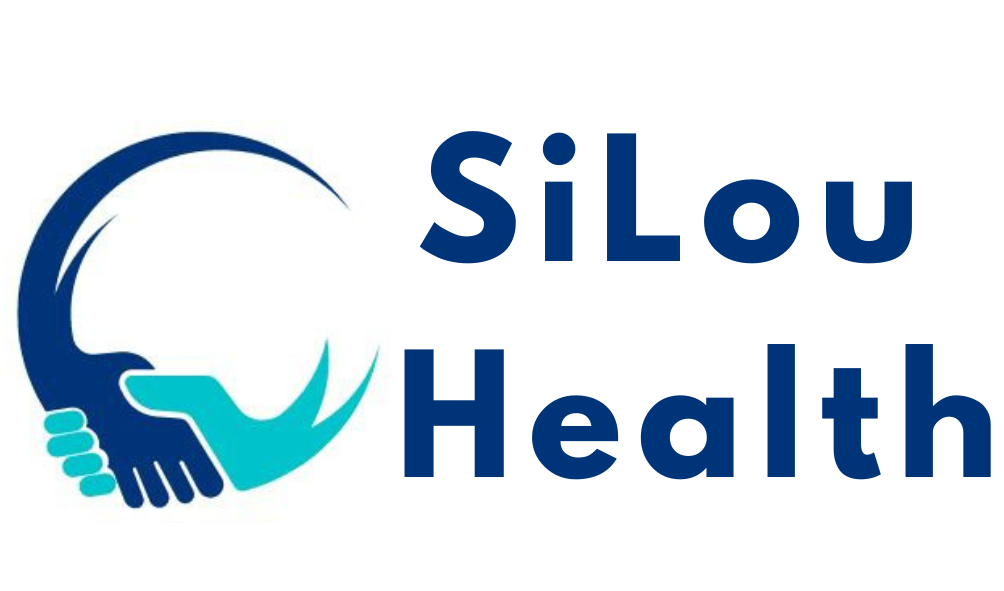The Hidden Emotional Journey: Supporting Your Mental Health During a Breast Cancer Diagnosis
Sep 29, 2025

When you first hear the words "breast cancer," time seems to stop. Your mind races with questions, fears, and emotions you never expected to face.
The physical aspects of breast cancer get immediate attention from your medical team. But the emotional impact often goes unaddressed, leaving you feeling unprepared for the mental health challenges ahead.
You might wonder if your emotional reactions are normal. You may feel guilty for being angry or ashamed for feeling scared. These feelings are completely valid and more common than you might think.
Understanding the emotional journey of breast cancer diagnosis can help you feel less alone and more prepared to care for your mental health alongside your physical health.
This guide will walk you through the common emotional responses to diagnosis and provide practical strategies for supporting your mental wellness during this challenging time.
Understanding the Shock: Your Mind's First Response
The initial moments after hearing your diagnosis can feel surreal. Many people describe feeling like they're watching someone else's life unfold or hearing news meant for another person.
This emotional numbness isn't unusual or unhealthy. It's actually your mind's way of protecting you from being completely overwhelmed by life-changing information all at once.
Common immediate reactions include:
● Feeling disconnected from reality
● Having trouble processing information
● Experiencing physical symptoms like dizziness or nausea
● Feeling like you're in a fog or dream
You might find yourself asking your doctor to repeat information multiple times or struggling to remember details from your appointment. This is normal and temporary.
Coping with initial shock: Bring a trusted friend or family member to medical appointments to help you remember important information. Don't hesitate to ask for written summaries of your diagnosis and treatment plan.
Permit yourself to feel numb or disconnected for a while. There's no timeline for processing this kind of news, and everyone reacts differently.
Consider recording your doctor's explanations (with permission) so you can review them later when you're better able to process the information.
Navigating Fear and Anxiety After Diagnosis
Fear becomes a constant companion for many people after a breast cancer diagnosis. These fears are rational responses to a serious situation, not signs of weakness or pessimism.
Common fears include:
● Worry about survival and prognosis
● Anxiety about treatment side effects
● Fear of hair loss and physical changes
● Concerns about family and financial impact
Nighttime often brings the most intense fears. Lying in bed with your thoughts can amplify worries and make sleep difficult.
Managing fear and anxiety: Establish a calming bedtime routine that includes activities like reading, gentle music, or guided meditation. This helps quiet your mind before sleep.
Write down your fears in a journal during the day rather than letting them build up. Sometimes seeing them on paper makes them feel more manageable.
Practice deep breathing exercises when anxiety feels overwhelming. Breathe in slowly for four counts, hold for four counts, then exhale for six counts.
When to seek professional help: If anxiety interferes with your daily activities, sleep, or ability to make treatment decisions, consider speaking with a counselor who specializes in medical anxiety.
Many cancer centers have social workers or psychologists on staff who understand the specific fears that come with a cancer diagnosis.
Processing Anger: Why It's Normal and Healthy
Anger often surprises people after a cancer diagnosis. You might feel angry at your body, frustrated with the unfairness of the situation, or irritated by well-meaning but insensitive comments from others.
Some people feel guilty about being angry, thinking they should be grateful or positive instead. But anger is a healthy, normal response to a difficult situation.
Anger might show up as:
● Frustration with your body for "betraying" you
● Resentment about having to deal with cancer
● Irritation with people who say things like "everything happens for a reason"
● Anger about potential changes to your life plans
Healthy ways to express anger: Physical activity, when approved by your doctor, can help release angry feelings. This might include walking, yoga, or other gentle exercises.
Talk to someone you trust about your anger without worrying about being judged. A counselor, support group, or close friend can provide a safe space to express these feelings.
Write an angry letter to cancer, your diagnosis, or the situation without worrying about anyone reading it. Sometimes getting it out on paper helps release the emotion.
What anger teaches us: Anger often shows us what we value most. Being angry about cancer can reflect your love for life, your family, and your plans. This passion can become fuel for your healing journey.

Working Through Grief and Loss
Grief is an unexpected but important part of the cancer diagnosis experience. You're mourning the loss of your sense of security, your previous identity, and the future you had imagined.
This grief is real and deserves attention, even though you haven't lost your life. You've lost your innocence about health and mortality, and that loss matters.
What you might be grieving:
● Your sense of control over your life
● The carefree approach to your health you once had
● Plans and dreams that now feel uncertain
● Your identity as someone who hasn't had cancer
Allowing yourself to grieve: Give yourself permission to feel sad without rushing to "stay positive" or "be strong" all the time. Healing includes acknowledging what you've lost.
Talk about your grief with understanding friends, family, or counselors. Sharing these feelings helps prevent them from becoming overwhelming.
Finding meaning in loss: Many people discover that working through grief after diagnosis helps them identify what truly matters most in their lives. This clarity can guide important decisions about treatment and recovery.
Grief doesn't mean giving up hope. It means honestly acknowledging the impact this diagnosis has had on your life while still moving forward with courage.
Building Your Emotional Support System
Creating a strong support network is crucial for your mental health during breast cancer treatment. This network should include different people who can provide various types of emotional support.
Types of support you need:
● Someone to listen without trying to fix your problems
● People who can help with practical tasks
● Friends who can provide distraction and normalcy
● Professional counselors who understand medical trauma
Communicating your needs: Tell your loved ones specifically how they can help you. Instead of waiting for them to guess, let them know whether you need someone to talk to, help with errands, or just a normal conversation.
It's okay to have different people for different needs. One friend might be great for deep conversations, while another helps you laugh and forget about cancer for a while.
Professional support options: Many hospitals have social workers, chaplains, or counselors available specifically for cancer patients. These professionals understand the unique challenges you're facing.
Support groups, either in person or online, connect you with others who truly understand your experience. Sometimes talking to someone who's been through similar challenges feels most helpful.
Setting boundaries: Let people know when you need space or when certain topics of conversation aren't helpful. It's okay to ask for what you need, even if it means disappointing someone occasionally.
You don't owe anyone constant updates about your condition or perpetual gratitude for their support. Protecting your emotional energy is important for your healing.
Practical Daily Strategies for Mental Wellness
Incorporating mental health practices into your daily routine can help you feel more stable and resilient throughout your diagnosis and treatment period.
Morning practices: Start your day with intentional activities that help you feel centered. This might include meditation, journaling, gentle stretching, or listening to calming music.
Avoid checking cancer-related news or social media first thing in the morning, as this can increase anxiety before your day even begins.
Managing overwhelming thoughts: When your mind feels flooded with cancer-related worries, try the "5-4-3-2-1" grounding technique. Name 5 things you can see, 4 you can touch, 3 you can hear, 2 you can smell, and 1 you can taste.
Set aside specific "worry time" each day, perhaps 15 minutes in the afternoon, to think through your concerns. When worries arise at other times, remind yourself to address them during your designated time.
Evening routines: Create a calming bedtime routine that helps your mind transition from the day's stress to rest. This might include warm baths, herbal tea, gentle music, or reading something unrelated to cancer.
Keep a gratitude journal by your bed and write down three things you're grateful for each night, no matter how small they might seem.
Staying connected: Maintain relationships and activities that bring you joy and help you feel like yourself beyond your diagnosis. This might mean video calls with distant friends, creative hobbies, or watching favorite movies.
Don't isolate yourself completely, even when you don't feel social. Brief, low-pressure connections can help maintain your emotional wellbeing.
Conclusion
The emotional journey following a breast cancer diagnosis is as real and important as any physical symptom you might experience. Your feelings of shock, fear, anger, and grief are normal responses to an abnormal situation.
Taking care of your mental health isn't selfish or optional during this time. It's an essential part of your overall healing and can significantly impact your ability to cope with treatment and recovery.
Remember that there's no "right" way to feel after receiving a cancer diagnosis. Your emotional experience is uniquely yours, and it's okay if it doesn't match what others expect or what you see in movies or books.
Professional support is available and can make a tremendous difference in how you navigate this challenging time. Whether through counseling, support groups, or other mental health resources, you don't have to manage these emotions alone.
You are stronger than you know, and you have more resources available to you than you might realize. Taking this journey one day at a time, with attention to both your physical and emotional needs, is the path toward healing.
Be gentle with yourself as you process this diagnosis. You're learning to carry something you never expected to hold, and that takes time, patience, and self-compassion.
Your mental health matters, your feelings are valid, and your healing journey includes much more than medical treatment. Trust yourself, accept support when you need it, and remember that hope and healing are possible.




